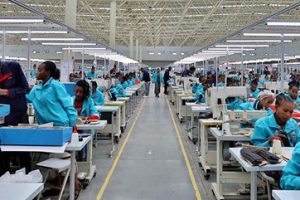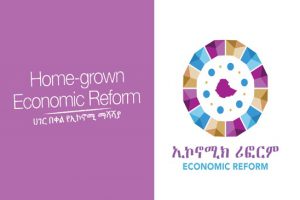
The peoples of Ethiopia have always been longing for justice for more than half a century. During the imperial regime, they have languished in search of justice right from the local village courts up to the crown court on which the emperor used to preside. Poor peasants had lost their hard earned properties in their quest for justice trekking to courts in endless litigations that took decades.
In fact, justice was the prerogative of local rulers and their vassals who interpreted the law according to their whims and desires. Social and legal Justice was considered not as a natural right of citizens but as generous grants from the emperor. In fact justice was vested in the personality of the emperor and not necessarily in the provisions of the codes of law.
In traditional Ethiopia, due to their dissatisfaction with the administration of justice in the feudal legal system, the citizens have established their own traditional courts of arbitration and reconciliation as tools for ascertaining the prevalence of justice both in the rural and urban communities. Elders and locally elected senior citizens played an important role ensuring the prevalence of the law and justice.
For instance, among the Oromos they have laws that are periodically enacted or reviewed in accordance to the provisions of Tuma Meko Beli, a system of enacting laws by specially elected elders in accordance to the provisions of the Geda System. Similar open field courts are also held under trees in communities in Amhara Region, Wolayita and Gurageh Zones of the SNNPR.
These community level traditional courts of justice are of greater importance for several reasons. In the first place greater respect is accorded to them and their decisions are binding and neglecting their decisions may result in ultimate ostrcization.
Promoting justice and the rule of law was also mentioned in the 1987 Constitution of the People’s Democratic Republic of Ethiopia but justice for the peoples of Ethiopia was cunningly shrouded with the ideology of the dictatorship of the unity of the working class and the peasantry which was just an ideological manipulation of justice and the rule of law.
Article 37 of the Constitution of the FDRE refers to the Right of Access to Justice through the courts of law in sub-articles 1 and 2 and also recognizes decisions by collectives and interested groups to pass decisions that could be used to promote any kind of justice related rules. Articles 88- 92 also refer to the various objectives under which the government should strive to ensure socio-economic and cultural rights of the peoples of Ethiopia.
Despite the provisions of the constitution, over the last 27 years, the peoples of Ethiopia had witnessed gross miscarriage of justice and deliberate tampering with the rights of citizens in reformatories and prisons. It was disgusting and appalling to listen and watch media reports on tortures conducted in official detention centers and unofficial centers of tortures which violated the basic human rights of citizens.
Some may think that justice is to be sought only at the courts of law. In my opinion, there is no area of human activity that does not require the administration of justice. Equity the distribution of national resources, gender parity, the right to the due process of law, the right to practice of worshiping and religion, right to cultural practices and use of language in any level of media and social interaction are all interrelated with the maintenance of justice in all its forms.
The current reform programs that are being conducted in Ethiopia are directly and indirectly connected to promoting both individual and collective promotion of justice. Of particular importance are the reforms underway in the justice system and the structural prerequisites for the administration of justice and human rights.
Again, some of us may think that justice prevails only through the laws enacted by the parliament and elements of the justice system in the country. At face value this pattern of thinking might seem to be correct but the institutes of justice are not the only custodians of the protection of social and legal forms off justice.
I personally think that justice can prevail in Ethiopia when individual citizens and social groups, public service providers, civil society organization work together in a coordinated manner to ensure the rule of law and good governance in all areas of public life.
In a multi-ethnic country like Ethiopia, ensuring justice is highly critical not only to maintain justice in general but also to ensure the specific rights of the nations, nationalities and peoples in the country based on the constitution.
Justice is completely incompatible with the vigilante justice that had plagued the country over the last four years and particularly over the previous year. Taking the law into the hands on an individual or group of persons outside the rule of law is no less than a crime or violation of justice. Over the previous years huge amount and type of public and private property has been lost due to the illegal actions organized and led by self-styled group leaders and cross eyed violators of human rights.
Sometimes politically motivated demands that are accompanied by violations of the law are taken as struggle for democracy but their real essence is act of crime.
In Ethiopia, the prevalence of justice is closely linked to observance and recognition of democratic rights and the rule of law. This is because one cannot be put in place without the other.
Over the coming year, institutions of justice need to closely work in full coordination to provide swift and effective justice before and after the rulings of courts. The most important issue in my opinion is the issue of mainstreaming the elements of justice in all government ministries, authorities, commissions and bureaus that are directly responsible to ensure justice in their respective areas of production and service delivery.
Justice can best be ensured through continuous public education on the rights and obligations of citizens and civil associations in the entire country.
Although the government has been doing a lot in the areas of justice, there are outstanding challenges that have set obstacle in the process of inclusively promoting justice for all. For instance, bribery of all kinds, selfish motives and negative attitude towards peoples and nationalities outside a specific ethnic group, bureaucratic red tape in service delivery, partiality in service delivery, general ignorance on the provisions of the law on specific issues are few of such challenges.
When it comes to ensuring justice, I would like to make a number of suggestions that I think would help to broaden justice in this country. Public education sponsored both by the government and civil society organization in cooperation with the media outlets can help citizens to become conscious of their rights and responsibilities.
Programs that were already operational in public and private universities in providing free legal services need to continue with more vigor focusing on providing free legal services for children and their mothers who suffer from all kinds of abuses.
More legal education for security forces including the police, I think is also very important. Besides, the country needs advocacy groups and research institutions that support law enforcement public institutions that strive to engage in effectively ensuring justice for all.
As my readers mark the day of justice a couple of days before the New Year, I wish happy New Year for my readers and all Ethiopians here and abroad.
The Ethiopian Herald September 10, 2019
SOLOMON DIBABA





